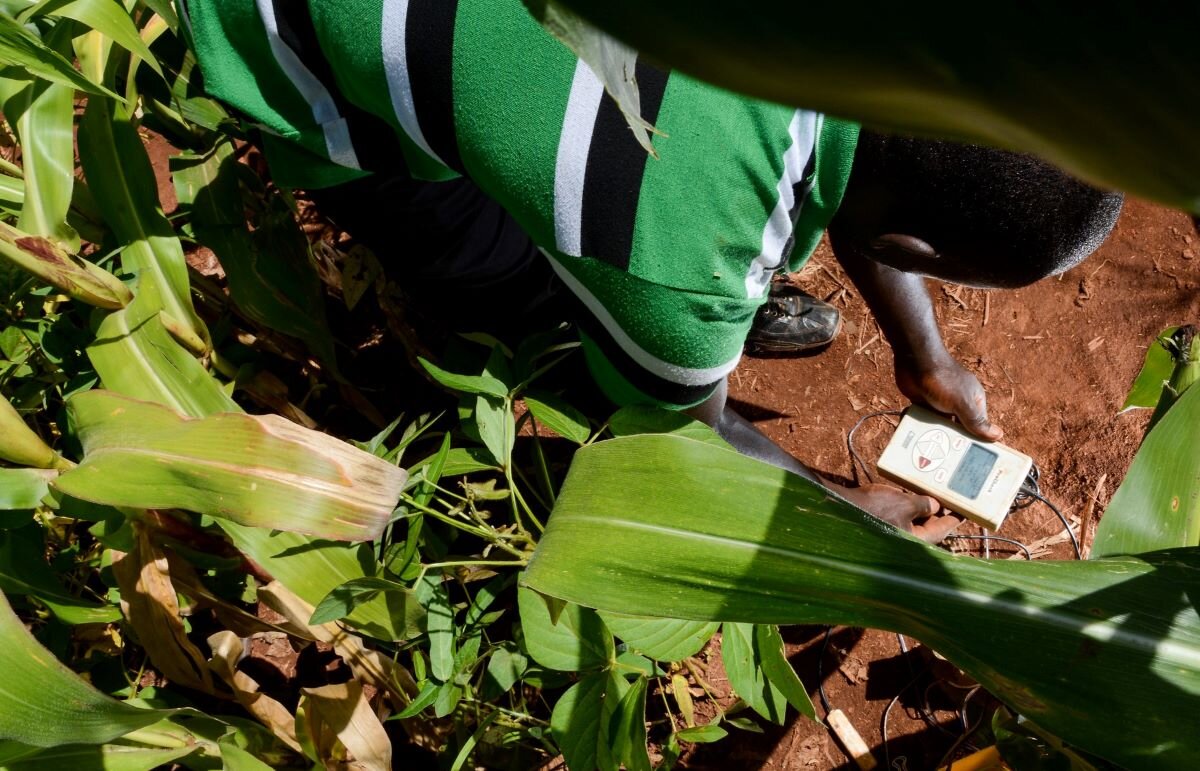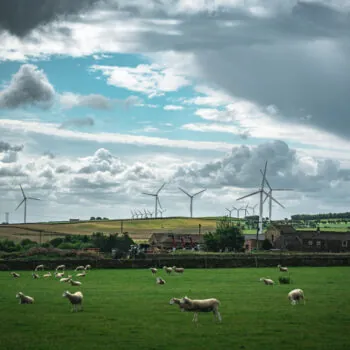Kicking off in two weeks’ time, COP27 has been branded “Africa’s COP”, with a strong focus on long-standing demands from the continent for greater attention to adaptation, agriculture and food systems. Given the urgency of these issues, and their importance to African partners, it is vital that the international community delivers on these priorities.
These priorities have been spelt out clearly in recent weeks. The Declaration from the AGRF Summit in Kigali in September called for global leaders to mobilise investment of $200 billion per year for adaptive food systems across Africa. Delegates flagged the urgent need for increasing access to finance for smallholder farmers – who produce 30% of global food – and for SMEs. In October, the IEA’s report on progress on the COP26 Breakthrough underlined that “global investment in research, development and demonstration of technologies and practices for resilient and sustainable agriculture needs to be increased, reversing the declining trend of recent years that threatens to undermine positive international efforts”.
Climate and food systems resilience
There is no doubt that world leaders will discuss the immediate crisis triggered, in large part, by Russia’s invasion of Ukraine and its impact on supply chains.
However, the risk is that the longer-term but equally urgent need to support smallholders adapting to the mounting impacts of climate change will remain neglected at this COP, as it has at others. The region’s agriculture and food systems are particularly vulnerable to climate change. Models indicate that temperature rises have already resulted in regional average yield reductions of 10–20% for millet and 5–15% for sorghum in West Africa. Yet, the Global Center on Adaptation estimates that African countries will face a $265 billion gap in financing for adaptation up to 2030.
The Declaration from the AGRF Summit in Kigali in September called for global leaders to mobilise investment of $200 billion per year for adaptive food systems across Africa.
Bridging the gap
Given private financing for adaptation is very limited, external public financing is therefore critical, both in itself and as a lever for attracting private finance.
COP26 made some progress in shifting policy attention towards agriculture and food systems — traditionally neglected at COPs, along with adaptation — with the announcement of the Policy Action Agenda for Transition to Sustainable Food and Agriculture; the Global Action Agenda for Innovation in Agriculture (or #climateshot campaign); the Glasgow Innovation Breakthrough in Agriculture; and the Agricultural Innovation Mission for Climate led by the US and UAE. Yet none of these initiatives mobilised the additional financing needed to help food and agriculture systems adapt to climate change in low- and middle-income countries.
COP27 needs to deliver on food for the future
COP27 will deepen the focus on food systems with a dedicated day on food and agriculture, multiple food and agriculture-related pavilions, and the launch of the Food and Agriculture for Sustainable Transitions (FAST) initiative, championed by the Egyptian Presidency.
However more policy commitments, without additional financing, risks sending a signal that the international community is not serious about moving existing commitments forward. There are several ways that finance providers can demonstrate their support for this push:
1 – Bring finance to the table in support of the COP27 Egyptian FAST initiative: Announce new and additional financing for RDD to support FAST initiative’s overall goal of increasing climate finance for agriculture and food systems, and in support of the wider goal to scale up climate finance and double adaptation finance.
2 – Drive forward COP26 commitments on financing innovation in food systems:
- Commit to financing one or more Agricultural Innovation Mission for Climate (AIM4C) sprints that focus on LMICs/Africa and/or issues relevant to African agriculture, particularly smallholders. Champion initiatives with AIM4C that aim to promote access to technology, knowledge accumulation, and resources for African countries and African institutions.
- Demonstrate progress on mobilising additional investment in agricultural RDD through the Global Action Agenda for Innovation in Agriculture and the Policy Action Agenda for Transition to Sustainable Food and Agriculture. Particular focus should be given to what has been achieved around adaptation.
3 – Deliver high quality finance for local agricultural adaptation solutions: Align rural development programmes and multilateral investments in LMICs to prioritise adaptation in agriculture and food systems and support innovation to build resilience. Ensure that bilateral programmes and multilateral initiatives recognise the vital role that African researchers play in identifying relevant, implementable innovations, and are constructed with accessibility in mind.
More policy commitments, without additional financing, risks sending a signal that the international community is not serious about moving existing commitments forward.
Agriculture and food systems are under-prioritised in international climate finance, compared to their importance to global emissions, adaptation and resilience, and food security. It is imperative that governments, MDBs and private sector investors work together to deliver higher levels of quality investment in agricultural research, development, and demonstration. COP27 must turn promises into action and investment.
At COP27, E3G and the Malabo Montpellier Panel will convene stakeholders to discuss financing research and innovation for adaptation in Africa’s food systems. For more information, visit the event page here: Financing research and innovation for adaptation in Africa’s food systems


